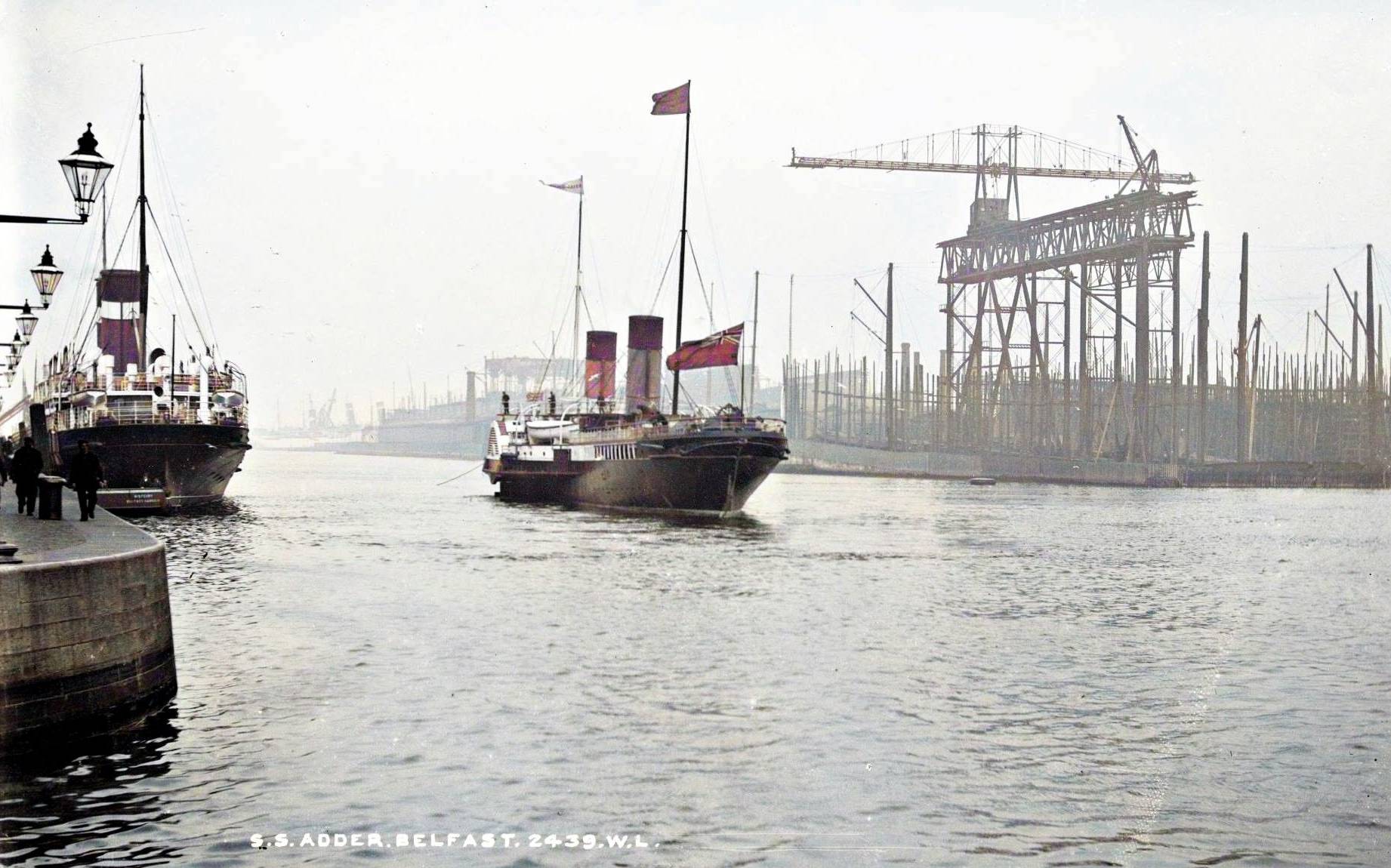Tracing your Irish immigrant ancestors can be a rewarding journey that connects you to your family’s roots and provides a deeper understanding of the history and culture that shaped your family’s story. The process of researching Irish genealogy, while challenging, can be made easier with the help of various resources and tools. This comprehensive guide will provide you with an overview of essential resources, online databases, and strategies for optimizing your research efforts.
Reasons for Irish Emigration
Understanding the reasons behind Irish emigration is crucial to put your ancestors’ experiences in context. Throughout history, the Irish have emigrated for various reasons, including economic hardships, religious persecution, political unrest, and the Great Famine. These factors played a significant role in shaping the lives of Irish immigrants and their descendants around the world.
Key Resources for Irish Genealogy Research
When researching your Irish immigrant ancestors, there are several key resources that can provide valuable information:
Civil Registration Records
Civil registration records are essential for tracing Irish ancestors. These records, which include birth, marriage, and death certificates, provide vital details about your ancestors’ lives. Civil registration began in Ireland in 1864 for all births, marriages, and deaths, and in 1845 for non-Catholic marriages.
Church Records
Church records are another vital resource for Irish genealogy research. Most Irish records were kept by the Roman Catholic Church and the Church of Ireland. These records can include baptisms, marriages, and burial records, and often predate civil registration.
Census Records
Census records are a valuable resource for tracing Irish ancestors, as they provide information about the entire household, including family members, ages, occupations, and addresses. Unfortunately, most Irish census records from the 19th century were destroyed, but surviving records can still provide valuable information. The 1901 and 1911 Irish censuses are available online and are fully searchable.
Land Records
Land records, such as Griffith’s Valuation and the Tithe Applotment Books, can provide information about your ancestors’ property and residence. These records can help you locate the townland where your ancestors lived, which is crucial for further research.
Passenger Lists and Immigration Records
Passenger lists and immigration records are valuable resources for tracing your Irish immigrant ancestors. These records can provide information about your ancestors’ journey to their new country, including the ship’s name, departure and arrival dates, and ports of embarkation and disembarkation.
Newspapers and Periodicals
Newspapers and periodicals can provide a wealth of information about your Irish
ancestors, including obituaries, marriage announcements, and news about their community. These resources can also provide insights into the historical context and events that shaped your ancestors’ lives.
Online Resources for Irish Ancestor Research
There are several online databases and archives that can help you in your search for Irish immigrant ancestors. Here are some of the most useful resources:
National Archives of Ireland
The National Archives of Ireland offers a variety of resources for genealogy research, including the 1901 and 1911 census records, wills and testamentary records, and military archives.
Website: https://www.nationalarchives.ie/
General Register Office
The General Register Office (GRO) is responsible for maintaining civil registration records in Ireland. The GRO’s online research service allows you to search for birth, marriage, and death records.
Website: https://www.welfare.ie/en/Pages/GRO_Research.aspx
Irish Genealogy
Irish Genealogy is a free online resource provided by the Irish government. It offers access to church records for the Roman Catholic Church, the Church of Ireland, Presbyterian, and Methodist congregations, as well as civil registration records.
Website: https://www.irishgenealogy.ie/
PRONI
The Public Record Office of Northern Ireland (PRONI) offers a wide range of resources for researching your Irish ancestors, including church records, land records, and wills.
Website: https://www.nidirect.gov.uk/proni
Griffith’s Valuation
Griffith’s Valuation is a crucial resource for Irish genealogy research. This land survey, conducted between 1847 and 1864, provides information about property owners and tenants in Ireland. The records can be searched for free on the Ask About Ireland website.
Website: http://www.askaboutireland.ie/griffith-valuation/
Irish Newspapers Archive
The Irish Newspapers Archive is an invaluable resource for researching your Irish immigrant ancestors. This online database provides access to a vast collection of Irish newspapers dating back to the 1700s.
Website: https://www.irishnewsarchive.com/
FamilySearch
FamilySearch is a free genealogy website that offers a wealth of resources for researching your Irish ancestors, including census records, church records, and passenger lists.
Website: https://www.familysearch.org/
Irish Immigration to Other Countries
Irish immigrants have made significant contributions to various countries around the world. Here is an overview of Irish immigration to some of the most common destinations:
United States
The United States has been a popular destination for Irish immigrants since the 1800s. Key resources for researching Irish ancestors in the US include passenger lists, naturalization records, and census records. The Ellis Island and Castle Garden databases are particularly helpful for locating passenger records.
Canada
Many Irish immigrants settled in Canada during the 19th century. Key resources for researching Irish ancestors in Canada include passenger lists, census records, and land records. The Library and Archives Canada website offers access to several databases relevant to Irish genealogy research.
Australia
Irish immigrants played a significant role in the development of Australia. Key resources for researching Irish ancestors in Australia include passenger lists, census records, and convict records. The National Archives of Australia and state archives provide access to various databases and resources for Irish genealogy research.
United Kingdom
The proximity of Ireland to the United Kingdom made it a common destination for Irish immigrants. Key resources for researching Irish ancestors in the UK include census records, parish registers, and passenger lists. The National Archives in the UK and various county record offices
provide access to a wealth of resources for Irish genealogy research.
Strategies for Successful Irish Ancestor Research
To make the most of your Irish ancestor research, consider employing the following strategies:
Begin with Known Information
Start your research with the information you already have about your Irish ancestors, such as names, dates, and places. Gather as much information as possible from living relatives, family documents, and any previous genealogy research.
Identify the Townland
One of the most critical steps in Irish genealogy research is identifying the townland where your ancestors lived. Knowing the townland will help you focus your research efforts on specific local resources, such as church and land records.
Use Surname Variations
Irish surnames can have various spellings and variations. Be flexible in your search and consider alternative spellings to ensure you don’t miss any valuable information.
Collaborate with Other Researchers
Collaborating with other researchers can help you uncover new information and resources. Join Irish genealogy forums, social media groups, or mailing lists to connect with others researching the same surnames or locations.
Consult Expert Guidance
If you encounter challenges in your research, consider consulting an experienced Irish genealogist or joining a local genealogy society. These experts can provide valuable insights and guidance to help you overcome obstacles in your research.
Conclusion
Tracing your Irish immigrant ancestors can be a challenging but rewarding journey. By utilizing the resources and strategies outlined in this comprehensive guide, you can uncover valuable information about your family’s history and heritage. As you delve deeper into your research, you will not only gain a better understanding of your ancestors’ lives and experiences but also forge a deeper connection to your Irish roots.






Leave a reply